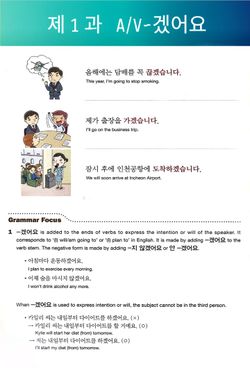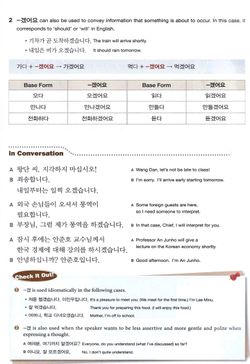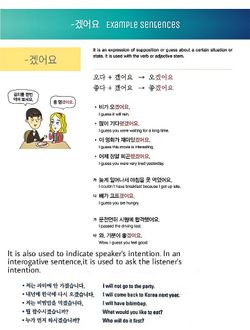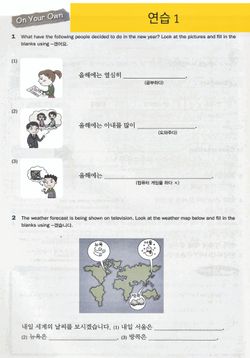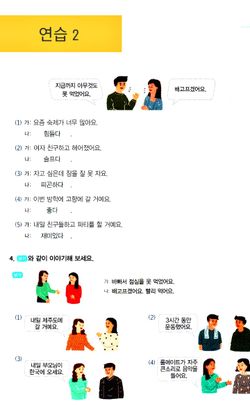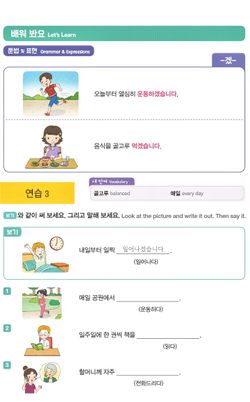Mar 21, 2022
Korean Grammar ~겠다
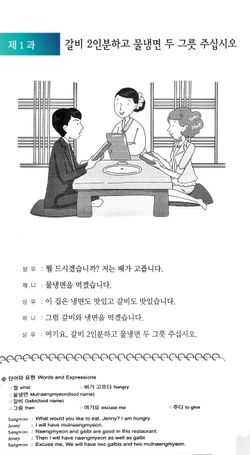
A/V-겠어요 grammar means
(1) will, plan to; (2) looks, sounds
Usage 1 of A/V-겠어요:
- Express the speaker’s intention or will to do something, so the subject must be the 1st person, e.g. 나 or 우리 = (I) will, be going to, plan to
- It can be used to convey information that something is about to occur = will, should
- Its negative form is -지 않겠어요 or 안 -겠어요
- This grammar is also used idiomatically or expressing thought of speaker in a more gentle and polite way.
Usage 2 of A/V-겠어요:
- Express a supposition about a certain situation or state = look like, sounds, appears
- In past tense, A/V + 았/었겠어요.
Adjective/Verb + 겠어요:
보다 → 보겠어요.
되다 → 되겠어요.
일하다 → 일하겠어요.
좋다 → 좋겠어요.
예쁘다 → 예쁘겠어요.
편하다 -->편하겠어요.
The usage and the examples of this grammar :
1. referring to a future event or assumption/ to guess a situation or someone’s feeling.
(a) 수업이 벌써 끝났겠다.
The class must have already ended.
(b) 맛있겠어요. It must be delicious
잘하겠어요. I will do well.
재미있었겠어요. It must have been really fun
2. referring to the speaker's will.
나는 이번 휴가 때는 부산에 가겠어
I would go to Busan during this vacation.
3. referring to a possibility or ability.
이 정도로 공부했으면 시험에 합격하겠지?
If I studied this hard, I would pass the test, right?
4. increases the politeness
(for 알다 and 모르다)
알겠습니다. I understand.
모르겠어요. I don’t know.
열심히 하겠습니다. I will work hard.
잘 먹겠습니다. I will eat well/ deliciously.
